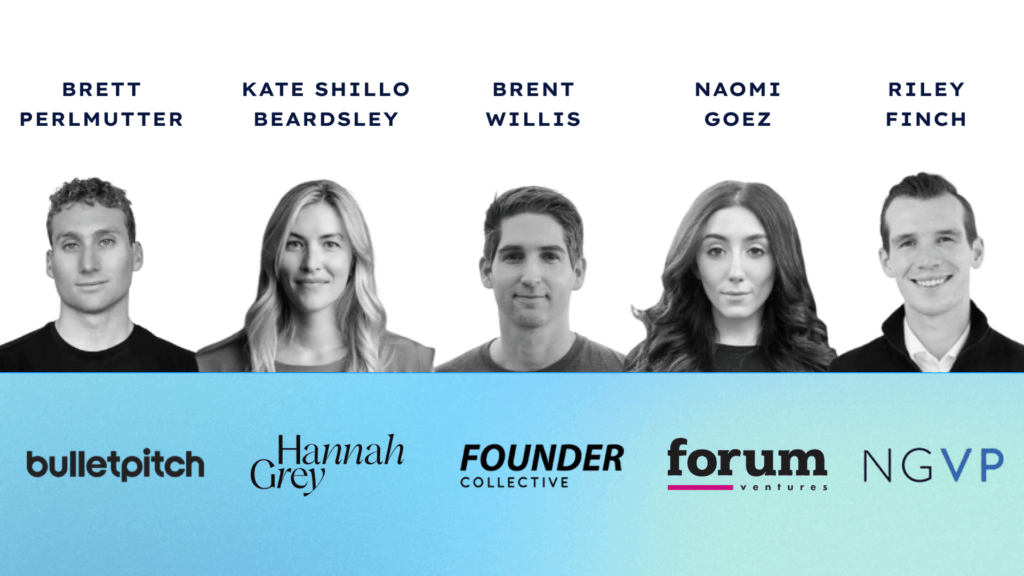


Pitch VCs Like a Pro: Expert Insights from Our Q&A with Investor Andrew Berg
For startup founders, mastering the art of the pitch is akin to unlocking the door to growth and opportunity. Now with the market heating up again, we’re bringing you insights directly from the POV of the Venture Capital (VC) firms themselves—so you can better position your company for success.
This month, we sat down with Companyon Investor Andrew Berg for his take on what to do—and what to avoid—when pitching a VC as a founder.
Q: How many pitches do VC firms typically receive, and what percentage of those mature to the next stage?
Andrew Berg: At Companyon, I end up looking at anywhere from hundreds to thousands of companies in a single quarter. We’re looking to catch B2B software companies in the gap between seed and Series A where we can help them achieve go-to-market fit with a whole host of internal resources on our end. It’s different at every VC firm, but because we’re super focused and get heavily involved with each and every company, we choose to pursue one deal every quarter. So, less than 1% of the pitches that I’m getting are going to move through the pipeline.
Q: What’s the top mistake founders tend to make when pitching for an initial meeting?
AB: Not doing their research beforehand. VCs have a very particular type of company that they’re hoping to see, and it’s important that you know as much about their ideal fit before reaching out to make sure you’re not wasting your time. Some of what they’re looking for might be published on their website, and much of it probably is not.
You’re going to have to talk to a lot of funds and kiss a lot of frogs, but doing as much research as you can beforehand can definitely get you fishing in the right pond.
Q: What tips should founders follow when attempting cold outreach?
AB: It’s best to start doing outreach anywhere from three to six months in advance of when you plan to raise. You should also find out what types of metrics they are looking for, and if you can’t find that information on their website, then ask them directly.
The worst thing you can do is email blast hundreds of funds at a single time, or buy a huge list and then try to email everyone on it. Most of those emails end up in Spam, but even those that make it to inboxes don’t elicit a response—because it’s very easy to see that you don’t fit their Ideal Company Profile.
So again, doing your research beforehand and getting a handful of meetings with firms that match your thesis, focus, sector, and traction is crucial. From there, you can start to widen your search by asking them, “Hey, who are some funds that you know that may be a better fit for our round?”
Q: What should founders focus on when reaching out to VC funds?
AB: Metrics are going to stand out the quickest from the beginning. When a founder can run through everything—for example, growth rate, number of customers, or capital raised to date—either in the email directly or with an attached pitch deck, it builds trust and confirms to funds that we wouldn’t be wasting our time.
Investors are also going to disqualify anything you’re saying that hasn’t happened yet. Projections two years into the future, pipeline pilots, or new revenue streams from products that haven’t been launched yet are pretty meaningless.
The best place to start is by being honest and transparent with where you are today and how you have tried to build a repeatable, scalable process for growth.
Q: Once a founder has booked that first meeting, what are best practices from the VC’s standpoint?
AB: First meetings are usually only 30 minutes, so getting to the point is really crucial to success. Founders will often open by going through the entire team plus advisors and board members, and that’s really not essential for a first call. It’s best to save those intros for subsequent meetings and instead focus on the problem it is that you’re trying to solve. Distilling the pain points as simply as possible while highlighting why people are willing to pay—and pay a lot—for your solution is key.
Q: What does the first-meeting follow up typically look like?
AB: Exciting prospects that are at the top of the list are likely going to get a follow up from the fund either same day or next day, but certainly within the week. A lot of firms host their weekly pipeline reviews on Mondays, so keep that timing in mind when you’re scheduling a follow-up after the first meeting.
Generally, if you’re waiting a while to hear back from a fund, it may be a sign that your company just is not a top prospect. If that’s the case, it might be better to spend your time focusing on finding some new relationships.
Q: What’s your take on the market trends shaping the VC landscape today?
AB: The market in 2023 was undoubtedly slow from a VC funding perspective. After the 2021 – 2022 craze, VCs are just being much more careful; a lot of funds didn’t deploy capital at all. At Companyon, we already only do four investments every year, so while we didn’t slow down, we are being more particular regarding metrics and finding the right company fit.
For now, the market is definitely heating up and VCs are starting to write more checks, especially with early stage deals, and that should continue to be protected.
Key Takeaways
Some of the most important things you can do when pitching to VCs are:
- Conducting background research on founder-fund fit
- Avoiding the use of email list purchases or massive cold email blasts
- Leading the conversation with an emphasis on key metrics that matter most to your target fund
- Focusing the first meeting on these metrics, your pain points, and your growth goals
Enjoyed this peek behind the curtain?
Companyon accelerates growth for early-stage software companies by connecting them with the talent (not just advice) they need to tackle the most pressing issues. From marketing and sales execution to data modeling, fundraising, and recruiting, Companyon is a force-multiplier on founders looking to execute their way to an outsized Series A or B. If you found this post informative, check out our blog for more insights into the expansion stage.
Our Resources
Get access to free tools to help accelerate your company’s growth, regardless of a future partnership with Companyon—because, we’re here to help.
Our Newsletter
Join our newsletter for helpful guides, expert insights and company updates delivered monthly to your inbox.



 Blog
Blog



